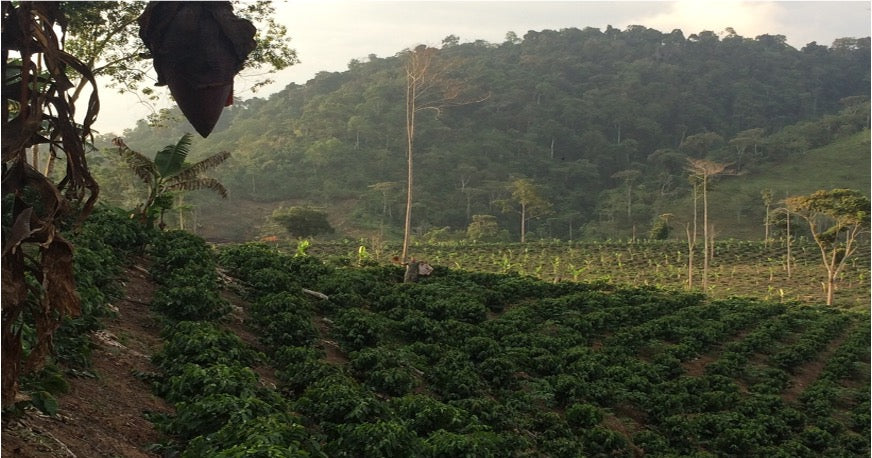Finca San Carlos, located in the state of Mérida in the Tropical Andes of Venezuela, is home to exceptionally cultivated coffee. The region is historically known for producing some of the best coffee in the world, and specifically for "Mérida coffees". The Mocotíes Valley, an elongated valley shaped by the Mocotíes River, is the area where this farm is located, which is part of the Lake Maracaibo basin, connecting with the Caribbean Sea. The climate in the area is strongly influenced by Lake Maracaibo on one side and the Mocotíes River on the other, creating a unique microclimate that offers optimal conditions for growing coffee.
The fertile and deep soils of the area with a balance of sand, lime and clay, and a high percentage of organic matter, are ideal for growing high-quality coffee. The coffee is grown in partial shade and with mixed management, which includes both organic and conventional practices, which allows the farm to grow its coffee sustainably. In addition, Finca San Carlos de Alejandro García does a great job of reforestation, through forest seedbeds and transplants, protecting soils and biodiversity, and diversifying the economy by planting fruit and timber trees. All these practices are a sign of the farm's commitment to sustainable agriculture and environmental protection.
The farm, which is located at an altitude of 1,100 meters above sea level, not only produces high-quality coffee, but is also a refuge for biodiversity, a place where the generation of relief, with a vision of production more sustainable, contemplates the protection of soils, the diversification of the economy and the activities of adaptation and mitigation of climate change. The farm has been dedicated to the production of high-quality coffee since colonial times, and its commitment to sustainability and environmental protection has not diminished over time.
History
The García family began growing coffee in the early 1800s in Táchira, Venezuela. During the 1960s, Md. Prof. Dr. José Vicente García returned from Germany and settled in Mérida, Venezuela. He developed a 60-hectare property in the Andean town of El Castillo and "San Carlos de Bella Vista" became one of the main coffee-producing states in the region. This area, known for producing some of the best coffee in the world, unfortunately suffered, during the early 90s, a period of economic crisis and lack of support for agriculture that led to a crisis that deeply affected coffee producers. . As a result, most of the plantations were abandoned or felled.
Despite adversity, including the unexpected passing of Dr. José Vicente, the Garcías remained resilient and managed to keep the plantation going until 2003.
In 2016, Alejandro, his sons and his brother Gustavo, in collaboration with Luis Andrade (APROCANDES), decided to return the cattle grazing lands to their origins: plant coffee and reforest with trees to provide shade for the plantation and support the mitigation of the climate change. This has motivated neighboring farmers to consider coffee as a viable and rewarding alternative, leading to an increase in Arabica coffee production. The Garcias are now looking for ways to directly position their coffees in Europe, with excellent sensory analysis scores averaging 84.
In 2022, thanks to the advice of their friend Ing. A. Bart Pauwels, the Garcías are exploring agroforestry-coffee, which has several benefits for the environment, economy and quality. The Garcia family and their partner Luis Andrade (APROCANDES) are committed to fostering and helping local coffee growers recover the local environment, contribute to a healthier planet, and improve their own living standards.

